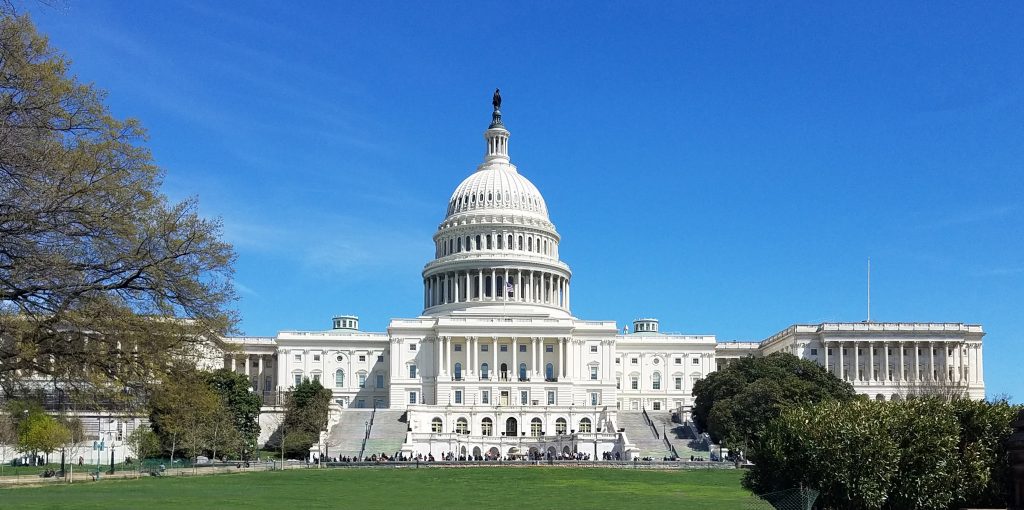
ITEP's Research Priorities
- 2025 tax debate
- Blog
- Cannabis Taxes
- Corporate Taxes
- Corporate Taxes
- Earned Income Tax Credit
- Education Tax Breaks
- Estate Tax
- Federal Policy
- Fines and Fees
- Georgia
- Immigration
- Income & Profits
- Income Taxes
- Inequality and the Economy
- ITEP Work in Action
- Local Income Taxes
- Local Policy
- Local Property Taxes
- Local Refundable Tax Credits
- Local Sales Taxes
- Maps
- Media Quotes
- News Releases
- OBBBA
- Other Revenues
- Personal Income Taxes
- Property & Wealth
- Property Taxes
- Property Taxes
- Publications
- Refundable Tax Credits
- Sales & Excise
- Sales, Gas and Excise Taxes
- Sales, Gas and Excise Taxes
- SALT Deduction
- Select Media Mentions
- Social Media
- Staff
- Staff Quotes
- State Corporate Taxes
- State Policy
- State Reports
- States
- Tax Analyses
- Tax Basics
- Tax Credits for Workers and Families
- Tax Credits for Workers and Families
- Tax Guide
- Tax Principles
- Tax Reform Options and Challenges
- Taxing Wealth and Income from Wealth
- Toolkits
- Trump Tax Policies
- Video
- Webinar
- Who Pays?
Intended Consequences: Deliberate Disinvestment Caused Florida’s Unemployment Disaster
May 4, 2020 • By Stephanie Clegg

Florida politicians deliberately rigged the unemployment system after the Great Recession to avoid raising taxes on businesses. Now, in a pandemic, some out-of-work residents are left waiting more than six weeks for unemployment benefits while more than 280,000 others have been inexplicably denied. What’s happening in Florida underscores deeper challenges with systems that should help those in need, but instead are designed to fail them.

COVID-19 has revealed a policy apparatus that reflexively prioritizes those who need it least, a wholly inadequate safety net, an underfunded public health infrastructure, and an inefficient national health stockpile. If the nation stays this course, it will make only cosmetic restorations to a shoddily built house.
New Mexico Voices for Children: Essential But Excluded
April 30, 2020
Immigrants pay taxes and are important contributors to New Mexico’s economy. Nationwide, immigrants pay hundreds of billions of dollars in federal, state, and local income and other taxes. New Mexico immigrants – both legal residents and those who are undocumented – contribute more than $996 million in federal, state, and local taxes that help support […]
Community Change: End the Tax Penalty Against Immigrant Workers
April 30, 2020
The Earned Income Tax Credit is a powerful path out of poverty in America, but millions of immigrant households are barred from receiving it, even though they would otherwise qualify based on their work and earnings. Allowing all working families who qualify to receive the credits they earn would strengthen all communities and boost the […]

A bipartisan group of governors and senators from Louisiana to Maryland to Ohio have called for at least $500 billion in state and local fiscal relief. They also need specific help with testing, protective equipment, unemployment costs, Medicaid costs, social services, education and infrastructure. States can’t be on their own as they address the double whammy of plunging revenue and skyrocketing needs.
Pandemic Profits: Netflix’s Record Profit Haul, Past Tax Avoidance Raise Questions about Tax Law’s Weaknesses
April 29, 2020 • By Matthew Gardner

At a time when many companies are facing existential threats due to the COVID-19 pandemic and associated economic shutdown, it is vital to ensure that our corporate tax laws apply fairly to companies that are still turning a profit in these turbulent times.
Sales Tax Policy in a Pandemic: Exemptions for Digital Goods and Services Are More Outdated Than Ever
April 29, 2020 • By Estefan Hernandez Escoto

Many states are making the decline in sales tax collection worse by failing to apply their sales taxes to digital goods (such as downloads of music, movies, or software) and services (such as digital streaming). A state that taxes movie theater tickets but not digital streaming, for instance, is needlessly hastening the decline of its own sales tax.
The CARES Act Provision for High-Income Business Owners Looks Worse and Worse
April 24, 2020 • By Steve Wamhoff

A select group of millionaires will receive an average tax break of $1.6 million thanks to a CARES Act provision that is receiving delayed but well-deserved scrutiny. Wealthy business owners are receiving this windfall because the CARES Act provides tax breaks to people with losses from a business they own. This approach may seem sensible because businesses small and large are taking a hit from the economic recession, but on close inspection, these provisions benefit those least in need and can be easily abused.
Partying Like It’s 2017: How Congress Went Overboard on Helping Businesses with Losses
April 24, 2020 • By Steve Wamhoff

The Coronavirus Aid, Relief, and Economic Security (CARES) Act provides some needed relief for individuals and families, but two arcane tax provisions related to business losses will further enrich the wealthy and fail to boost our economy more broadly.
ITEP: Making Decisions on Federal Relief Based on Blue v. Red States is Morally Bankrupt
April 24, 2020 • By Meg Wiehe

Following is a statement by Meg Wiehe, deputy executive director of the Institute on Taxation and Economic Policy, regarding Senate Majority Leader Mitch McConnell’s press release on “blue state bailouts” and suggestion that states facing budgetary shortfalls should seek bankruptcy protection.
To Avoid the CARES Act’s Flaws, Invest in Automatic Relief
April 23, 2020 • By Jessica Schieder

With adequate automatic stabilizers, the United States might not end up with economic relief bills that have provisions tucked in them mostly helping millionaires, as we learned was the case with a CARES Act provision suspending limits on business losses. And regular people could get help more quickly, blunting the economic downturn.

Media contact Following is a statement by Amy Hanauer, executive director of the Institute on Taxation and Economic Policy, regarding the Senate bill on small business relief. “State budgets have already taken an enormous hit due to the necessary halting of economic activity to curb the COVID-19 public health crisis. The initial $150 billion in […]

The full effect of the coronavirus pandemic on state revenue streams remains largely unknown. One key policy option is to reevaluate recent misguided tax cuts—particularly those that have not yet taken full effect and will add to growing revenue shortfalls in the coming years.
Morally and Economically, Including Undocumented Immigrants Is the Right Thing to Do
April 17, 2020 • By ITEP Staff

Undocumented immigrants pay taxes and play an integral part in the social and economic welfare of our country, yet Congress left them almost entirely out of the CARES Act package. Fortunately, immigrants, workers and their allies are helping policymakers advance better policy approaches.
State Options to Shore up Revenues and Improve Tax Codes amid Pandemic
April 15, 2020 • By Dylan Grundman O'Neill, Meg Wiehe

The COVID-19 pandemic is an extraordinarily challenging time, as we see harm and struggle affecting the vast majority of our families, businesses, public services, and economic sectors. No one will be unaffected by the crisis, and everyone has a stake in the recovery and faces tough decisions. In the world of state fiscal policy, where revenue shortfalls are likely to be far bigger than can be filled by the initial $150 billion in federal aid or absorbed through funding cuts without causing major harm, tax increases must be among those decisions. Even with more federal support, states will need home-grown…
GBPI: Implement Immigrant-Inclusive Policies During the COVID-19 Crisis
April 15, 2020
Immigrants represent one in 10 Georgians and are critical to Georgia’s economy, with 31 percent of main street businesses owned by foreign-born Georgians and undocumented Georgians contributing $352 million in state and local taxes in 2017. Immigrants are key leaders in our communities and contribute to the state’s cultural and linguistic diversity. During this public […]
ITEP: Tax Cuts for Millionaires in the CARES Act Violate Public Trust
April 14, 2020 • By Amy Hanauer

“Public trust and the broad agreement that families and communities needed immediate relief from the economic crisis allowed the $2.2 trillion economic relief package to move quickly through Congress. Yet during a crisis in which thousands have lost their lives and millions are losing their jobs, their health care and their retirement security, some of our lawmakers snuck in tax benefits for the nation’s richest families."
Addressing the COVID-19 Economic Crisis: Advice for the Next Round
April 7, 2020 • By Steve Wamhoff

Americans need many things right now beyond tax cuts or cash payments. But for people whose incomes have declined or evaporated, money is the obvious, immediate need to prevent missed rent or mortgage payments, skipped hospital visits and other cascading catastrophes. So, what should Congress do next to get money to those who need it?

Last week, President Trump destroyed everyone’s coronavirus press conference bingo card by announcing that a conversation he had with celebrity chef Wolfgang Puck inspired him to propose restoring a corporate tax deduction for business entertainment expenses. Trump’s own signature tax plan repealed this break two years ago.
Federal Relief Bill Doesn’t Go Far Enough: Q&A with Meg Wiehe
April 2, 2020 • By ITEP Staff, Meg Wiehe, Stephanie Clegg

The final version of the Coronavirus Aid, Relief and Economic Security (CARES) Act enacted last week included rebate provisions that will reach most low-, moderate- and middle-income adults and children, but not everyone. Meg Wiehe sits down for a Q&A to discuss who benefits from the rebate provision, who is excluded and how states can respond to support communities.
NC Policy Watch: Those Federal COVID-19 Checks: What They Mean and Who Might Get Left Out
April 2, 2020
In a replay of how aid checks were dispensed during the Great Recession, the CARES Act reveals giant holes in how we get cash to people in desperate need. Without federal, state, and local policy action, many of the North Carolinians who need aid most urgently will be the last to get it or won’t […]
Colorado Fiscal Institute: Protection From a Pandemic: The Federal Response to COVID-19 in Colorado
April 2, 2020
The federal response contains important provisions designed to help individuals and families, businesses, and state and local governments respond to this unprecedented event. This report aims to provide a summary of these provisions and how they will affect Colorado specifically. Read more
Sales Taxes and Social Distancing: State and Local Governments May Face Their Steepest Sales Tax Decline Ever
April 2, 2020 • By Carl Davis, ITEP Staff, Meg Wiehe

One pressing question is what will an economic downturn in which consumers are anxious, facing job loss, or simply spending their time sheltering in place and not spending money in typical ways, mean for states’ ability to raise revenue?
Boeing “CARES” A Lot About its Shareholders—But What about the Rest of Us?
April 1, 2020 • By Matthew Gardner

The gigantic Coronavirus-related tax and spending bill enacted last week, the so-called “CARES Act,” sets aside $17 billion in loans for “businesses critical to maintaining national security.” It’s generally understood that the bill’s authors want much, if not all, of this $17 billion to go to a single company: Boeing. So it behooves us to ask whether Boeing benefits America and its economy in ways that merit this largesse.

Temporarily modifying the structure of the EITC to reflect the realities of our current economy could provide a vital lifeline to low-income workers who have seen their incomes disappear during this crisis. What follows are a few such ideas which could be implemented at either the federal or state levels, or both.
